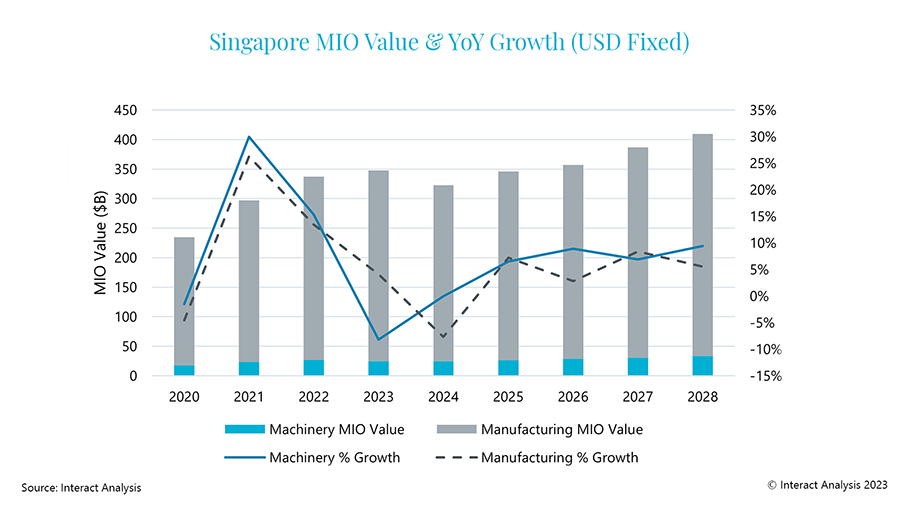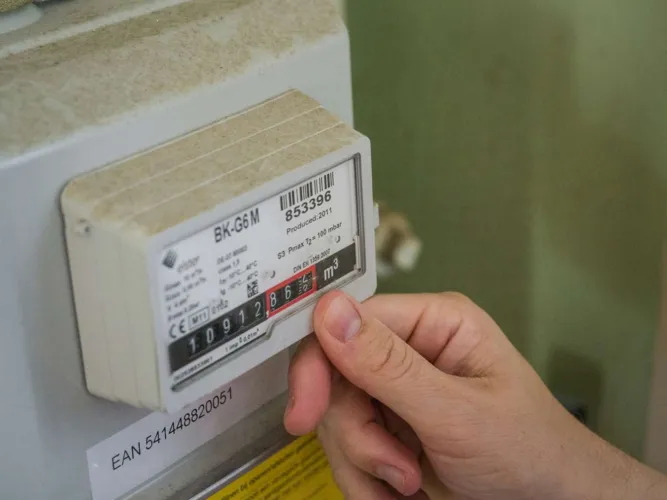Singapore advanced manufacturing is surging ahead, fueled by government support, digital innovation, and strong global demand for electronics and semiconductors. As of May 2025, Singapore’s manufacturing output rose by 3.9% year-on-year, and by 4.9% when excluding biomedical sectors. The industry now contributes around 25% of national GDP, a reflection of its critical role in the economy. Let's take a closer look!

Sector Strength: Electronics, Semiconductors, and Precision Engineering
The precision engineering cluster, including semiconductors and electronics, is thriving. In fact, semiconductors and related components now make up 44% of Singapore’s total manufacturing output. This strong base is driven by robust global demand and technologies such as artificial intelligence, electric vehicles, and cloud computing.
Singapore plays a vital global role, contributing 11% of the world’s semiconductor output and 20% of global semiconductor equipment manufacturing. By 2025, the sector is expected to maintain near-full order books, signaling a positive growth trajectory.
Singapore Advanced Manufacturing: Smart Factories and Digital Transformation
At the heart of this transformation is the integration of Industry 4.0 technologies. Singapore is investing in smart factory systems, robotics, and AI-driven manufacturing platforms. These tools are improving productivity, efficiency, and product customization capabilities across the board.
Government-backed programs like the Industry 4.0 Human Capital Initiative and digital manufacturing labs are equipping the local workforce with skills needed to manage and lead in the new era of manufacturing. The M2030 Careers Initiative is also helping build rewarding career paths in advanced manufacturing.
Read Also: The Role Singapore Digital Finance Research Globally
Government Support: RIE2025 and Manufacturing 2030 Vision
A major pillar behind Singapore advanced manufacturing is the S$25 billion RIE2025 plan (Research, Innovation, and Enterprise). This funding supports innovation in manufacturing technologies, encourages collaboration between public and private sectors, and develops talent pipelines.
Singapore’s long-term target is ambitious: to increase total manufacturing output by 50% by 2030. This vision, known as Singapore Manufacturing 2030, aims to ensure the country remains a global leader in high-value manufacturing.
Singapore Advanced Manufacturing: Aerospace, Logistics, and Future Growth
Beyond semiconductors, aerospace, 3D printing, and logistics automation are also expanding. These sectors are part of Singapore’s Industry Transformation Maps (ITMs), which align economic growth strategies with future skills and technology needs.
By 2028, Singapore’s Industry 4.0 market is projected to hit US$182 billion, with advanced technologies embedded across the value chain. Forecasts also estimate manufacturing value-add will reach US$81.7 billion in 2025, further underlining sector resilience and growth.
Investment Magnet: A Global Manufacturing Hub
Singapore’s business-friendly climate, skilled workforce, and strong policy support are attracting foreign direct investment. Global players like GlobalFoundries, UMC, and Siltronic have expanded operations, citing Singapore’s strategic location and digital maturity as key advantages.
For automation providers and industrial tech firms, Singapore presents a rare blend of market readiness, scale, and state support.
Read Also: Why Investors Favor Singapore Business Environment Trends
A Future-Ready Manufacturing Ecosystem with Singapore Advanced Manufacturing
From smart factories to global supply chain leadership, Singapore advanced manufacturing is evolving rapidly. Anchored by bold investments, skilled talent, and high-tech infrastructure, the nation is well-positioned to remain a global manufacturing powerhouse. As the world moves deeper into Industry 4.0, Singapore stands out not just as a participant, but as a leader.







